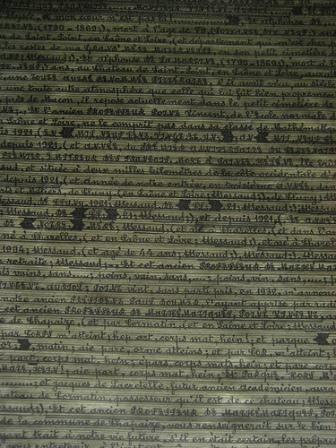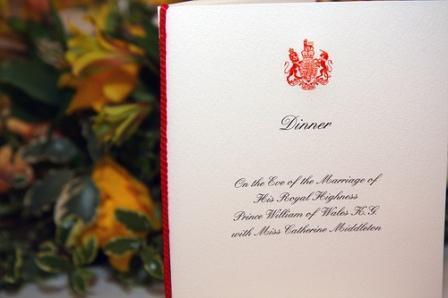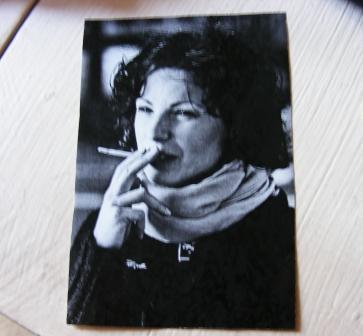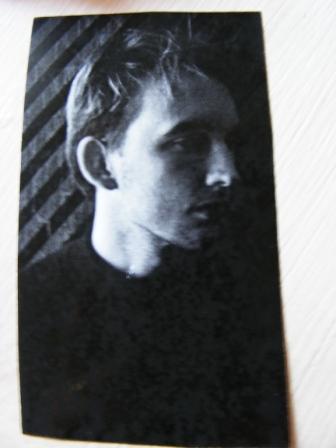Roz Morris's Blog, page 110
June 6, 2011
A bad book? No, it's a good book you haven't fixed yet
 Three reasons why you shouldn't abandon a book you're not happy with
Three reasons why you shouldn't abandon a book you're not happy with
Before I get started on this post, I just want to say thanks for all the messages on my previous one! Yes, I had a very productive time. I've still got a way to go but hopefully it shouldn't be too long before I can show you something. And the main thing is, the book and I are now getting on well…
On with the post!
Why does a writer abandon a book? Someone remarked to me on Twitter the other day that one reason might be because the book wasn't worth writing.
I thought that was an interesting point, especially as every fibre of me was disagreeing.
In my book Nail Your Novel I discuss how I started a book and rambled on for a solid 60,000 words, only to give up because I didn't know how to make it good enough. That sounds like a pretty epic failure.
But inside that muddle is a story I very much want to write. I just don't know how to do it yet. I might need to put more ideas with it, or even take some away. It's not abandoned, it's suspended. Awaiting further work.
It's all about the idea
If an idea has grabbed you enough to make you want to write about it in longform, there must be something beating away in it. When I've talked to writers who aren't happy with what they've done, it's usually for three reasons.
Is your idea big enough?
Part of the problem with my 60k monster was that I didn't test the idea rigorously enough. Now, experience has taught me to do a lot of tyre-kicking before I barricade the doors and write. I want to know:
Who the main character is
Who might oppose them
What those people are trying to do
What the setting is
How things will get worse
Why that might make a long story, not a short one
What ending will be surprising and perfectly inevitable
As is clear from the above, one bolt of inspiration will not go far enough. But many writers make the mistake of setting off inadequately armed for a full-length novel.
So if you feel your novel wasn't worth writing, is it because something is missing?
Maybe it's a theme and you haven't found the right character to bring it alive. Or the right story to explore it – which of course springs from the characters. Maybe it's an inciting incident that doesn't have the legs for an entire novel, in which case your idea is only the beginning. Maybe you haven't made the world sufficiently dense. Would a sub-plot that explores a contrary or complementary side be the answer? Maybe most of those elements are in place and what you actually need is to reorganise and rewrite the material you have.
Do you like what you've done with the novel?
Maybe your story has ticked those boxes but doesn't light your fire.
Although one stab of inspiration isn't enough to make a whole novel, most novels usually have one central idea at their core. Knowing what this is will help you make a book that is not only artistically coherent and elegant, but a book that will satisfy you.
Take a long hard look at your idea and what you've done with it. Ask yourself why you're dissatisfied. Stories can change flavour drastically on the flip of an event – and maybe yours has gone up an alley you find disappointing. So much of story-writing is gut instinct, so learn to listen to it. When you're solving a story problem you might think of as many solutions that you don't like as solutions that you do. If you hear when your gut tells you something's wrong, you're half-way to writing a book that will satisfy you.
Do you have the chops to do your idea justice?
Sometimes our ideas are too ambitious. We may need to raise our game, learn more craft, read more, in order to do them justice. That's okay; novel-writing is a long game. A lot of us who can dash off a simpler book have more challenging ones we're waiting to grow into. Leave your idea for a while, write some other books, and return when you're ready to lock horns properly.
But there's no such thing as a bad book. Only one you haven't fixed properly yet.
If you're struggling to shape an idea into a full-blown-novel, you'll find plenty of support and suggestions in Nail Your Novel – Why Writers Abandon Books and How You Can Draft, Fix and Finish With Confidence. Available in print and on Kindle.
Thank you, MelP, for the picture. In the meantime, tell me – have you any abandoned books in your writerly closet? Or suspended ones? Why did you stop work on them?








May 26, 2011
Gone writing… back in June
 I'm ducking out of cyber-life for 10 days. No blogging, no Facebook – although if you follow me on Twitter I've scheduled a stack of great writing links to keep you creatively provoked.
I'm ducking out of cyber-life for 10 days. No blogging, no Facebook – although if you follow me on Twitter I've scheduled a stack of great writing links to keep you creatively provoked.
If you're not on Twitter you can follow them here in the sidebar, if Twitter and WordPress are getting on nicely.
There's something special I'm brewing in the meantime, so this is all in a good cause… and in a few weeks I will have something rather exciting to share.
Thank you, Cometstarmoon for the picture
In the meantime, if you've ever unplugged too, or if you're having a big push on a special book right now, wave to me in the comments. See you soon








May 22, 2011
Time to get passive aggressive – get your main character out of the back seat
 We hear a lot about passive and active characters, but what does this mean? And why is character passivity such a problem?
We hear a lot about passive and active characters, but what does this mean? And why is character passivity such a problem?
A problem I see in many manuscripts is that the main character is passive. By this I mean the character doesn't seem to do very much. The trouble and events are inflicted on them and the story consists of them reacting or trying to extricate themselves. They're in the back seat of the story – and other people (and forces) are in the driver's position.
What's wrong with that, you might ask? Certainly, many stories might kick off with an act from an outside person, a coincidence or bad luck. But if most of the mess and trouble that follows is caused by other people, and not the central character we are reading about, what happens?
The person in the driving seat becomes the more interesting character.
Well, of course they do. They have more gumption. They are pushed further by their hopes and fears. They are active shapers of their own destiny. They are more likely to surprise us. In short, they are riding a bigger rollercoaster than the character who is centre stage.
(Of course, you may be making a deliberate choice to make your character passive; but if not, you're probably unintentionally neutering them.)
Not just novice writers
But the problem of making main characters passive seems to be a tricky blind spot – and not just for first-time novelists. I was once in a writing group that included several much-published authors, at least one of them award winning. While they read excerpts from their WIPs, the rest of us would frequently tell them off for making their main characters passive.
So it seems our natural inclination might be to put our characters in the back seat, rather than the one that has the wheel. Which makes me wonder – why?
Because we like it that way
For most of our lives we're in routines – juggling the conflicting demands of work, play, family. Traditionally, a story might start when an event bolts out of the blue and disrupts the status quo. The writer thinks as we all would – what would I do? We'd deal with the distraction and try to restore normality as soon as possible. Because this is how real life works.
The second reason we naturally make our characters passive is this – most writers are the hermit, routine kind of person. It's not that we aren't shapers, making our destiny, but we do it most actively inside our heads. We observe, react, shuffle the cards – and write. It's no wonder our natural inclination is write passive characters.
Stories are not like life
So all that is true to life, but stories and entertainment don't work in the same way as real life. In stories we want trouble and change or they're hardly worth telling. We also want to feel we are on a journey with a person who is driven to unusual and interesting lengths by what is happening to them. Someone who isn't just reacting, but has interesting urges awoken by what is going on. Not fire fighting, but about a fire that is forging a new them. Active characters aren't naturally more dashing than you or me. They are driven to new extremes – possibly to do things that they never thought they were capable of.
With all that in mind, there are two ways to naturally make your main character more active.
1 – If possible, don't start a story with an event from outside – a death, a job loss, a hit and run, a murder. Instead, make the kick-off event arise from what the character is already doing. Grafting drama on from the outside can only produce reactions – when an active character needs to take action.
2 – Make this inciting incident something that makes it impossible for the character to go back to their life as they were before.
Find a way to force your character into the driving seat.
Do you have problems with recognising when your main characters are passive? Or do you prefer them that way?








May 16, 2011
Ghostwriting, hiring an editor – and the Kindle millionaires
 Today I'm being interviewed by historical and speculative novelist KM Weiland at Authorculture, a powerhouse blog she shares with authors Lynette Bonner, Johne Cook and Linda Yezak. Its manifesto is 'to inspire, enlighten and unite writers and readers', which sounds pretty necessary to me. And, with their combined background of writing, editing, publishing and mentoring, they certainly deliver.
Today I'm being interviewed by historical and speculative novelist KM Weiland at Authorculture, a powerhouse blog she shares with authors Lynette Bonner, Johne Cook and Linda Yezak. Its manifesto is 'to inspire, enlighten and unite writers and readers', which sounds pretty necessary to me. And, with their combined background of writing, editing, publishing and mentoring, they certainly deliver.
They've long been champions of my book Nail Your Novel, and today they wanted to pick my brains about red-hot topics for writers today – how ghostwriting works, what to look for in a freelance editor, the mistakes I see most commonly in WIPs, the Borders closure, the recent upheavals in publishing – and the Kindle millionaires.
Terrific questions, and I do warn you Katie let me say rather a lot…








May 15, 2011
Using an editor? Two questions so you don't shoot the messenger
 Two major reasons why authors might get angry after a critique report from an independent editor
Two major reasons why authors might get angry after a critique report from an independent editor
I thoroughly enjoy the final stages of writing a critique for an author client. I've digested their novel, I know what's ticking nicely and what isn't. It's even more exciting when I know they have the skill, the insight, the ear for language and the sensitivity for story and character. That if they solve the remaining problems, their novel will really set sail.
But often I know I'm going to get an email telling me, probably at great length, that I'm wrong. That the novel doesn't need any more work. Even, wanting me to change my mind and agree with them.
I'm not talking about changes to make a work more commercial. I don't tend to suggest those anyway; they are usually as much about fashion as craft. A novel takes so long to get right that by the time you submit it, boy wizards, time travel, vampires and vector botany will all be gone to the pulping machine in the sky. Yes, even vector botany, which as far as I know hasn't happened yet.
And I'm not talking about perfectly understandable disappointment or sensitivity. While I'm always honest, I'm never brutal. Believe me, I know what it's like to have heartfelt stories raked over. I get notes from agents and editors too.
And of course I check before I accept a client that I understand their aims as a writer, so I don't give advice that's way off kilter.
What I am talking about is a vibe from the client that makes me certain that when they open my report they're going to shoot the messenger – with both barrels.
Now, though, I've learned to spot them, so I test them with the following questions.
1 – Have you allowed time for rewrites?
Often the writer is angry with me because they thought the book was fit to submit, give or take a few light edits. Or that they could hit self-publish.
The second question is more complex.
2 – Is your book based on traumatic events that happened to you?
Some people start writing a novel as therapy. That can be a recipe for a self-indulgent, unreadable book. But many writers produce works of astounding power from their own traumas.
If they have unresolved issues with some of the subject matter, or the rotters they are writing about, it often comes across as flaws in the book. I quite often find passages where the writer still needs to unravel more, to step back and examine. There are places that are stridently defensive, or characters who are treated with jarring harshness, whereas elsewhere the reader is allowed to make up their mind whether they like someone or approve of their behaviour. (I'm not saying this never works, indeed such blindness and fury can be heartbreaking. And if it is, I leave well alone…)
If a client is writing about personal traumas, I warn them that, in acting as the book's advocate, I may make some criticisms that could touch a nerve. But I'm doing what they asked for, to help them make the book as good as it deserves to be.
Before you give a manuscript to a professional editor, obviously try to finish it and polish. But – here's the conundrum – expect it probably isn't finished at all. In particular, don't make a deadline for sending it out afterwards. Expect that you might need to take a good few months to tweak, re-evaluate and rewrite.
When you ask for an editor's help, they want you to write the best book you can. Allow the space and time to do that, mentally, temporally, physically and emotionally.
(Thank you, Bedford Street, for the picture)
Have you used editors? Do you offer this service yourself? Share your experiences in the comments!








May 11, 2011
A new mission for literary agents
 You might have heard this week that the Ed Victor Literary Agency has started its own ebook and print-on-demand venture, initially to republish clients' books that have fallen out of circulation.
You might have heard this week that the Ed Victor Literary Agency has started its own ebook and print-on-demand venture, initially to republish clients' books that have fallen out of circulation.
I said in a comment on my recent post Should You Hit Self-Publish that this was disappointing. Because what I'd really like to see is agents using a model like this to showcase the work of original new writers.
As I said in my post, publishers were once allowed to acquire books purely because they were good, but now they have to worry about selling sure-fire winners to book chains and supermarkets. This means the original, the unusual, the unknown, the pesky cross-genre novelists are not getting publication deals. And yet these books were considered brilliant enough for agents to take them on.
There can't be an agent in the world who doesn't have a few titles they're 100% passionate about but can't sell.
This is bad for our art form. It's bad for authors. It's bad for everyone who likes a good read. It's ghettoising our next generation of original authors, who ten years ago would have had a chance to build a career.
So what I'd really like to see is this. Agents should start their own 'discovery' imprints on POD and ebook. They should showcase, say, six titles every few months that they passionately believe deserve to be read.
The major reviewers would take notice, because the titles would have been stringently picked with the seal of approval of a legitimate agent. It would be another way to encourage publishers to have confidence in these new authors. And even if the showcased titles were too kooky for the mainstream, the publishers might want to know about the author's other work.
It used to be that if you self-published a book, you'd scuppered all chances of it appearing in print conventionally. Even that's changing. Kindle Direct Publishing's latest newsletter features the story of Nancy Johnson, who published her novel on Kindle and has had offers of representation and publishers wanting to buy foreign rights.
All in favour, say aye








May 8, 2011
The three ages of becoming a writer
 Was writing so easy when you started? If you're bogged down by all the techniques you don't know and it's squashing the life out of your writing, this post is for you
Was writing so easy when you started? If you're bogged down by all the techniques you don't know and it's squashing the life out of your writing, this post is for you
I used to take singing lessons. I'd always loved belting out a tune, and being rather a perfectionist I wanted to do it well. I sailed through the basics and was sent to an advanced teacher. Then the trouble started. She had been a child prodigy and had been coached, much like a Russian gymnast, to do nothing but her art. So she was entirely intolerant of imperfection.
I'd open my mouth and she'd say 'your tongue's in the wrong place'. And I hadn't even made a sound. Tongues, by the way, are not just the flappy thing you can see. They go all the way down your throat and have to be kept flat. Pretty soon I was so bamboozled by the invisible anatomy that had to be under conscious control that I couldn't sing at all. Not even a good holler in the bath, because I had a weight of bad habits to eradicate. What used to be so natural became impossible.
I stopped. Gradually the desire to sing came back. I started experimenting with the techniques she'd tried to din into me. I built a singing technique for myself, enjoyed making musical noise again, fortified (and amplified) with what I understood. Now, as friends will attest, just don't let me start.
The uncomfortable second age
I meet a lot of writers who are flailing in that uncomfortable middle area. They began with ideas to express, stories to tell and a joy of playing on the page. Then they learned how many undesirable habits they had and how much they needed to unlearn. Making a scene instead of summarising. Structuring properly. Making our heroes heroic and believable. Not using adverbs. Thousands of criticisms that tell them they know nothing about the activity that used to bring them joy. Pretty soon, they aren't trusting any of their instincts – or even letting them speak at all. Or they've lost faith in the book they're writing.
It's no wonder we hear people worrying that by learning craft they're becoming robots obeying a formula.
The third age
But if we carry on, we come out into the third stage. One day, we find we're kicking back and writing as ourselves again. We're not thinking about rules any more. They're not strictures into which we are trying to fit. They are tools we are going to use in our own way to make our individual novels. We know them as well as we know our mother tongue.
And, tongues not withstanding, we're singing on the page again.
Thank you, pink_fish13, for the picture.
I've said there are three stages to becoming a writer. Perhaps there are more. What do you think?








May 1, 2011
Alan Titchmarsh is the Prime Minister of Canada – using pictures to bring characters alive
It's often a struggle to bring a character alive the first time they appear in a book. Here's one of the things I do
I once made Alan Titchmarsh the Prime Minister of Canada.
I hope he'd be amused to know that, and let me make it clear that it was only in the privacy of my study and the pages I was writing. I was ghosting a novel and needed to drum up a distinguished-looking presence for a few scenes. I didn't have an internet connection to look up the real PM so I flicked through a magazine, happened on a picture of gardening broadcaster and novelist Mr Titchmarsh – and the vibe from it was exactly what I needed. The Prime Minister of Canada came alive on the page.
One of the things that can trip us up when we're writing a scene is when we need to describe something we haven't yet given any thought to. It's easy enough to get visual prompts for physical places. But characters – who don't really exist except in our heads – can be tougher.
Stephanie Ebbert of the blog Beyond The Margins wrote a short while ago about finding a picture of someone who looks like the character in your WIP. I've been doing this for years. I hoard faces for future use, a mugshot gallery of people I want to cast in novels. It's rarely about such literal characteristics as eye colour and nose shape. I choose them for their expression – something that suggests the way they talk, what they care about and who they will be friends with.
Mr Titchmarsh is an unusual addition to my mugshot library. Most of them are not famous folk, as they come with obvious associations. What I'm looking for is someone into whom my character can descend, like a spirit, or someone who already carries an essence of them. I'm probably the only person who is fascinated by magazine pictures of people I do not know at all, wondering if they could inhabit one of my worlds. Flickr's another great resource too.
The pictures with this post are some of the characters from my literary novel, My Memories of a Future Life. I've long forgotten who they really are or where I found them. Now they are a pianist, a hypnotist and an artist and their destinies are intricately connected.
Do you have pictures of your main characters? If you do, let's try an experiment – post them on your blog, if copyright or confidentiality allows – and post a link in the comments.
In the meantime, ladies and gentlemen, I present to you… the Prime Minister of Canada.








April 28, 2011
Umming and ermine – how to avoid getting in a right royal mess

Thank you, Foreign and Commonwealth Office, for the pic
If today's little wedding in London is sending your head awhirl with thoughts of court and nobility, you might like to know how to get your royals right
First of all, there's a general hierarchy. Emperor beats king; king beats viceroy; viceroy beats archduke; archduke beats grand duke, who beats duke, then prince, marquess, count, earl, viscount, baron, baronet, hereditary knight, knight and dame. Of course, we don't have all of those in England. And plenty of other countries have their very own courtlies such as csars. More about royal hierarchy here, plus how long those titles have been in use for all you historical fans.
Then there's how you address them. If you're talking to a duke, it's 'I say, Duke', as though you were addressing John Wayne. Marquesses and their wives are Lord and Lady with their place name – Lord Bath. But you don't use the place name when addressing dukes and duchesses, unless you had several dukes in earshot at once. Clear?
In Scotland there are chiefs who are called Macdonald of Macdonald, or use The as their forename (The Chisholm).
If all that's getting you in a royal flush, drop a knee at Debrett's.
The wife of an earl is a countess but if you're addressing her in person you call her Lady Wherever, not Countess. Unless she's Countess of Wessex. Most earls are earls of Somewhere, although a significant number do not use the 'of' – like Earl Spencer. Most of the noble ranks should be addressed as lord or lady. Their children are too, except if they're The Honourable, although that's only used in correspondence and formal documents, and never on visiting cards or invitations even though you might think those are correspondence. And if the Hon is female she's 'The Hon Jane Smith' but if she gets married she's 'The Hon Mrs Newsurname' with no forename. Honestly, only Debretts can save you.
And if you're writing about the royal household of the British monarchy, we have a few colourful roles such as a Lady in Waiting (when they've waited for long enough they might qualify and actually become a lady). But did you know there's also an Official Harpist to the Prince of Wales, an Apothecary to the Household, and the Clerk of the Green Cloth? Bustle over to here.
Fascinating as these details are, what's most interesting is what they're like as characters. So if you're writing about people with extraordinary positions, remember their lives are not like those of others and neither are their personalities. This post of mine might help you – how to write presidents, kings, queens and superstars.
Carry on, and don't lose your head.








April 27, 2011
Vision and revision: don't miss our final seminar (with daring URL)
 At Victoria Mixon's again, for the last in our current batch of editor chats. It's been great fun doing the series, bouncing ideas back and forth with a like-minded writer and editor. Even better, commenters are saying our series is as good as a writing conference – so thank you for that!
At Victoria Mixon's again, for the last in our current batch of editor chats. It's been great fun doing the series, bouncing ideas back and forth with a like-minded writer and editor. Even better, commenters are saying our series is as good as a writing conference – so thank you for that!
Tonight our subject is 'Vision and revision', or the buckets of perspiration that follow a bolt of inspiration. We talk about brainstorming and developmental editing, the imaginative quarrying that makes a nebulous idea into a solid novel and how, in the midst of all that sweat we keep our vision fresh. Heady stuff – come and see.
(Thank you, Compujeramay on Flickr, for the photo) Plus Victoria was dared by a naughty tweep to give the post an outrageous and topical URL. No, I didn't encourage her at all. Nothing to do with me.














